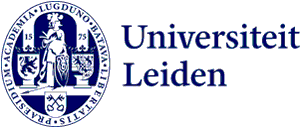
Five questions on the new annual appraisal
No more ones, twos or threes, but focusing on development opportunities. This summer, the Faculty of Humanities will start a pilot for the new Performance and Development Interviews (PDI). HR adviser Marion Sluijs tells us more about it.
Why is there a new format for the PDIs?
'There are developments going on in the university, in areas such as sustainable employability, leadership and recognition & rewards. Collaboration and working in teams are becoming increasingly important in academia, and we want to integrate this into the PDI. About a year and a half ago, we started talks with a large number of focus groups within the university. These discussions showed that people were dissatisfied with the questions asked and the scores they were given. In short, they felt that the current PDI instrument was outdated. We therefore started a pilot for a new kind of annual interview at the Faculty of Law. We are now continuing that at Humanities for academic staff, while Student and Educational Affairs (SEA) has started a pilot for support staff from 23 April.'
What will change?
'The main change is that the conversation will become more development oriented. Previously, it was mainly about looking back, whereas now looking ahead takes precedence. That doesn't mean that performance no longer matters, but there will be more room for how you did something, in addition to what you did. How can you learn from your achievements? And how can we help you do that? This way, there are more pointers to change something or work on your self-development. Of course, that next step on the career ladder remains important, but we want to emphasise that there are lots of other opportunities to carry on developing and keep yourself motivated.
In addition, the employee is given more control over the conversation. This means that from now on, in preparation for the interview, you yourself first fill in the form. The manager will complete it later. Finally, an important change is that the norming scores will disappear, as will the sub-scores.'
Does the elimination of the five-point scale mean that assessment disappears from the annual appraisal?
'No. The interview still contains an assessment, only it is no longer given in figures, but in words. In itself, there is nothing wrong with grades, but in practice they were often not used properly. People would get a 4, for example, because they had worked hard and not because their performance was outstanding. Moreover, a 3 was perceived by a lot of people as 'a six', giving them the impression that they were actually not doing well enough. By doing the assessment in words from now on, we hope to do better justice to people’s performance.'
How are employees prepared for the new interviews?
'All the documents needed to prepare for the new annual interview will be on the website. There will also be a training programme for interested managers. A series of meetings will then cover skills such as giving feedback, constructive listening and talking about skills and competences.'
What will happen after the pilot ends?
'The pilot runs from 3 July until the end of the calendar year. During those six months, people can contribute their ideas on what is good in the pilot or what could be improved. At the end of the year, we will evaluate with different sounding board groups. Ultimately, the results of the three pilots at Law, SEA and HUM will be merged into one tool that will be rolled out for the entire university in 2024.'

Dean Mark Rutgers on the new PDI
‘The new PDI is an important step towards achieving a more substantive and open dialogue with each other about work. Following a pilot at the Faculty of Law, we are now entering a pilot process at our faculty. Together, we will make sure that the existing PDI system better reflects how we want to behave towards one another. In line with the Faculty Strategic Plan <insert link>, this new approach to the annual appraisal supports several ambitions. In particular it is about being able to shape how we deal with recognition and rewards for talented staff, and not only academic staff. The greater emphasis on recognition & rewards means more attention will be paid to teamwork as a quality. Development, (personal) leadership, giving and receiving feedback, but also the contribution to the collective (the team) will therefore play a greater role in this.
‘As dean, I am enthusiastic about the improvement proposals for our faculty and I think it properly reflects the wishes of people within the faculty.’
Policy adviser HR en project leader Mark Peters over het nieuwe ROG
Simplification
The premise of the new PDI is that everyone who works, and continues to work, at Leiden University meets the reguirements. The assessment standards in the form of the current rating scores (1-5) will be changed during the pilot to 'meets the requirements' or 'improvement is necessary'. Mark Peters, project leader for Leiden University, adds: 'Don't let the annual appraisal come as a surprise, by which I mean and expect that you also have conversations with each other in the interim about how things are going in your work and with your development.’
Our approach
Mark: 'The new approach is being carefully tested in pilots and in coordination with boards and participation bodies. After Law and SEA, this pilot is the third where we are testing this transition towards the new annual appraisal. A small pilot at Social and Behavioural Sciences will also follow in September. We’re going to use the evaluations of the pilots to make the Annual Interview better for the entire university. It’s good to see that so many colleagues are responding enthusiastically and positively to this development.'
